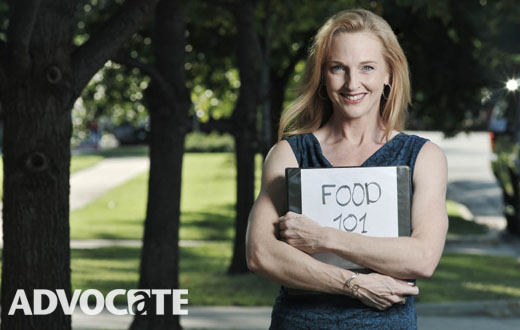Whether you’re a foodie or simply enjoy a good meal, the holidays flood the senses with delicacies that can be nearly impossible to resist. We enlisted Preston Hollow resident Meridan Zerner, a registered dietitian with Cooper Clinic, to tell us when we should or shouldn’t keep our salivating lips sealed.
During the holidays, is there really a way to enjoy all the house parties, family dinners, school potlucks and the like without sacrificing your sanity?
Define “sanity” [laughs]. Seriously, though, of course we can manage holiday parties, but it takes a mindful plan — a strategy! For each of us, there’s a certain amount of calorie accountability — an amount that allows us to maintain or lose weight in a healthy way. Find out that number. Then, we budget for those parties and, along with exercise, nutrition’s trusty sidekick, we can stay on track to maintain our health. Maybe try the new plate model at myplate.gov. Recreate that plate with half being full of vegetables, and you have a reasonable 500-calorie meal.
What if the sight of a brown sugar-glazed ham is too hard to resist and someone finds himself of herself putting on a couple pounds, where do you go from there?
We all gain and lose a few pounds throughout the year. Our bodies are designed to fluctuate a little, but when those few pounds become three, four or five, then it’s time to rein it in! The temptation is to be extreme or radical in “reining it in,” and that never works. Diets that eliminate food groups, are extremely low in calories or don’t allow for real world circumstances have a very high failure rate. We recommend that people start again with a good night of sleep (there is a great science to the sleep/weight management connection), eat a protein-plus-carbohydrate breakfast and plan out their 150-200 calorie snacks so they can eat frequently through the day. Add exercise, even minimally to start, and you have a recipe for success.
Is there an upsurge of people participating in fad dieting after the holidays, and is there truth to the benefits of any of them such as the Paleolithic diet?
The post-holiday season is notorious for new and wacky diets finding their way onto store shelves. Some are better than others, and some are downright irresponsible. We don’t want to compromise other aspects of your health on the way to weight loss, especially when you can do both — lose weight and improve health. U.S. News and World Report reviews diets each year. The 2012 report featured 22 experts who reviewed and ranked some of the more well-known plans on the market. The Paleo diet did not rank very well. In spite of good concepts like “consume less sugar” and “eat more fruits and vegetables,” this diet eliminated dairy and grains (even whole grains).
What is the best way to get through the holidays and still look good come spring?
Plan for dietary indiscretions by cutting back on calories elsewhere. Include at least five fruits/vegetables each day to help with fullness, fiber and overall health — even in the face of that triple layer chocolate mousse Yule log cake. Don’t starve yourself before a party — it will likely backfire. So have small, healthy snacks leading up to the big event. Don’t leave the cookies and treats on the counter because those nibbles add up, too! Commit to at least the minimum amount of exercise (five days a week, 30 minutes a day). This helps to maintain your muscle mass, improve your mood and burn off a few of those sneaky seasonal calories.







